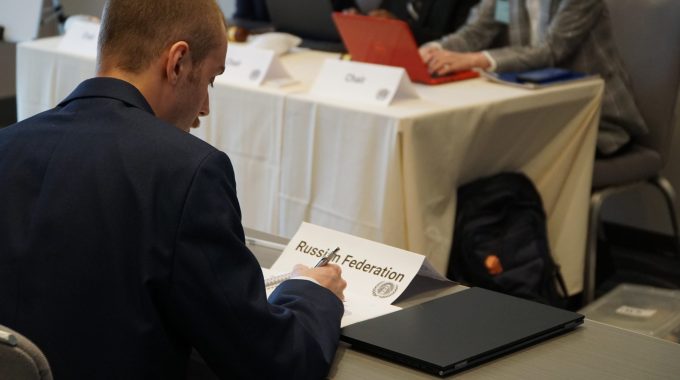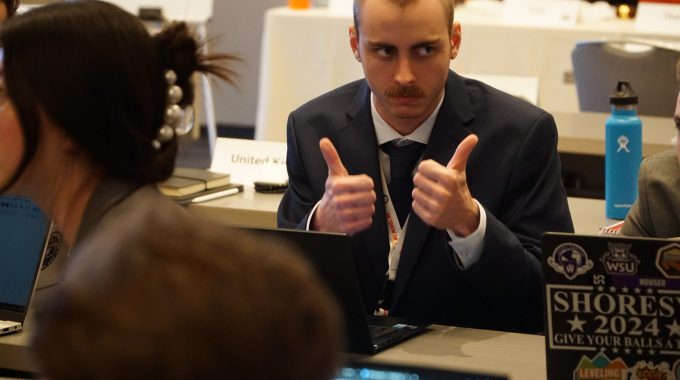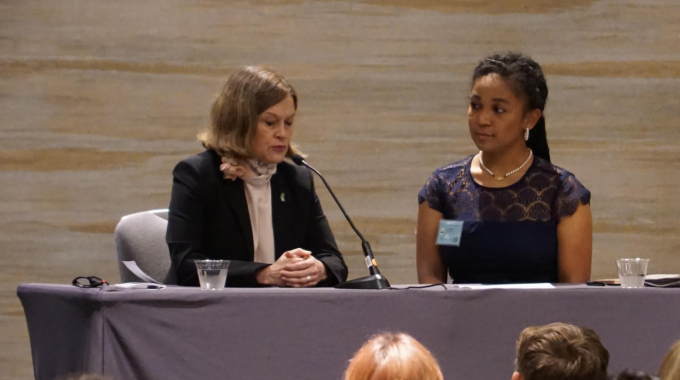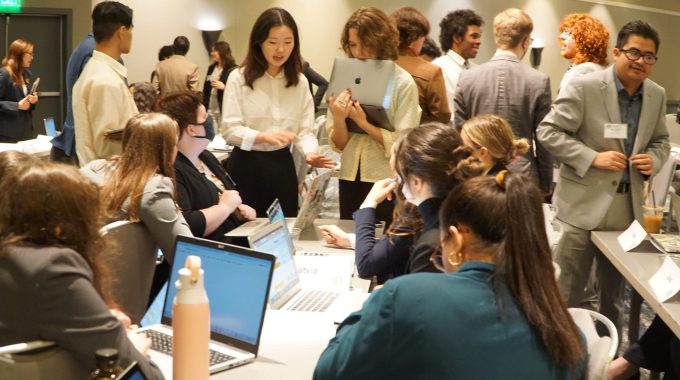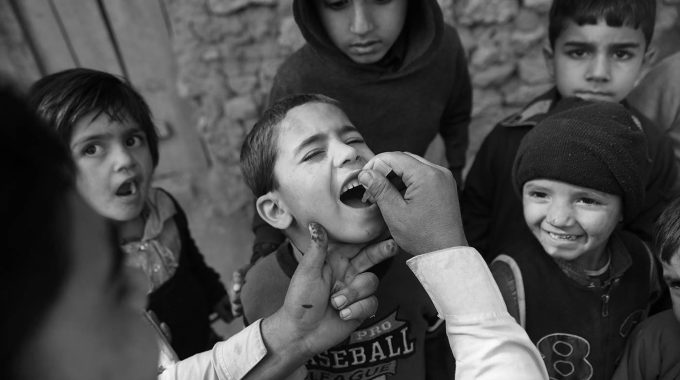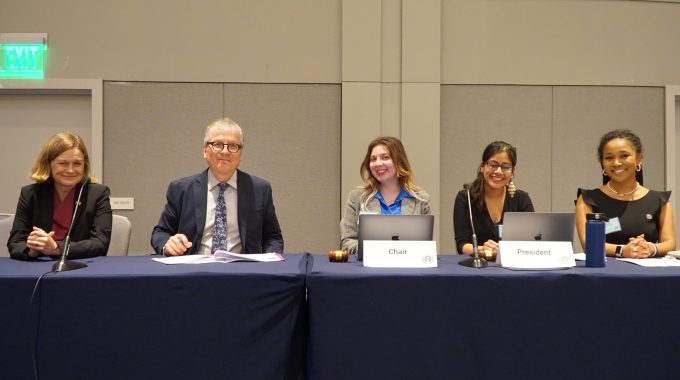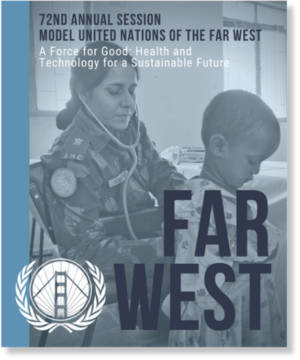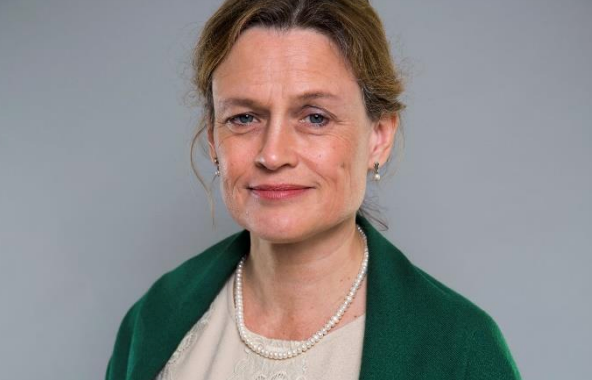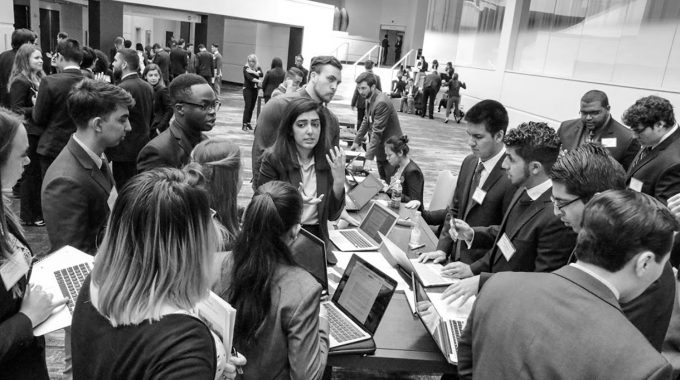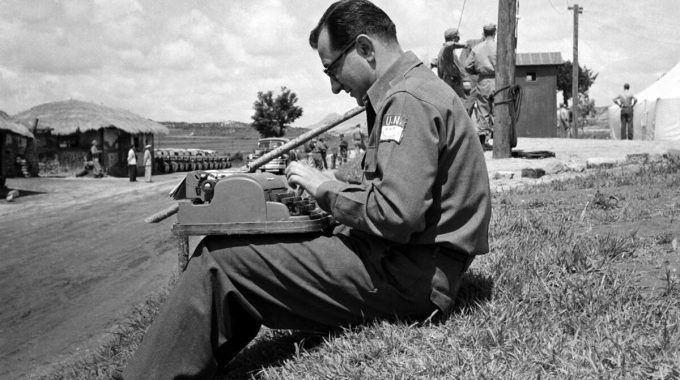Russia in the News vs. the IAEA and Passed Resolutions
The final day at the conference is bringing a wave of excitement as delegates anxiously hustle to finish passing resolutions in every committee. This is especially true for the International Atomic Energy Association (IAEA).
At the start of day three, one resolution passed unanimously on the First Topic on promoting the safe use of nuclear technology in the eradication of marine microplastics. The committee then moved to debate on Topic Two on ensuring safety and quality in radiation medicine, starting two papers, both of which eventually passed later that day. The discussions and resolutions primarily focused on research, Nuclear Technology, and the environment. Upon starting Topic Three on nuclear non-proliferation, disarmament, and sustainable disposal, the committee voted to invite the DPRK (GA), Israel (GA), and Ukraine (3rd committee) to join the discussion on nuclear nonproliferation and disarmament. The three invited delegated gave speeches and answered any followup questions and comments, concluding a very busy day for the IAEA committee.
On the final day, the IAEA committee started off with more speeches about Topic Three on nuclear nonproliferation and disarmament. Being a World Press reporter for the Republic of Lithuania, I found it appropriate to interview and question the motives of the Russian Federation when it came to their intentions to reduce their nuclear stockpile. Lithuania, having joined NATO in 2004, has made significant strides towards democracy and de-Russification following the fall of the Soviet Union in 1991. From the very beginning of the war in Ukraine, Lithuania had opened its borders for Ukrainian refugees and was one of the very first Baltic countries to condemn Russian aggression and the blatant violation of International Law as it pertains to sovereignty and the breach of human rights. Upon questioning the Russian delegate about how they plan to reduce their nuclear stockpile, while also reminding them of Russia’s moving of nuclear missiles into Belarus, their response to the placement of nuclear weapons in Belarus was “strategic” and currently Russia bares “no intention of moving them at the current time.” As for the rest of nuclear stockpile, the Russian delegate responded “we do hope to work with the other delegates that posses nuclear weapons like the UK, France, United States, [and] India, in order to find a common ground on how we can reduce our stockpiles in a comparable way.”
Such a response warrants concern over the seriousness of Russia’s intentions as the response itself is hypocritical. According to Kyiv Independent, an English-language Ukrainian online newspaper created in 2021, the Russian Foreign Minister Sergey Lavrov had lashed out at the West during his speech at the United Nations Security Council in New York, in which Lavrov strongly criticized Western countries, in particular the U.S., which he said is “aiming for the destruction of globalization” and wants to “undermine multilateralism” in the Asian-Pacific region. However, as the IAEA committee is on its final leg of the race, with some four resolutions coming about on Topic Three, Russia has signed on as a sponsor to Resolution A/72/3/Res. 4, titled, Accelerating Efforts Towards Nuclear Non-Proliferation and Nuclear Safety and Security with Priority to Decrease the Threat of Nuclear War. This resolution seeks to create a weapons-free zone around the 50 km of the Zaporizhzhya nuclear power plant in Zaporizhzhya, Ukraine. As a reminder, in the first weeks of the war, Russian military shelled the Zaporizhzhya nuclear power plant, one of the largest nuclear power plants in Europe. The Zaporizhzhya Oblast or region, is one of the four illegally annexed region by Valdimir Putin. The region remains a hotspot for shelling, casualties as recent as earlier this month (April, 2023), killed two civilians overnight in the city and capital of the region (PBS News Hour), which is partly covered by the 50 km weapons-free perimeter outlined in resolution A/72/3/Res. 4.
Although the strides and sponsorships on behalf of the Russian delegation at MUNFW are somewhat out-of-character compared to the Russian delegation at the United Nations, it is difficult not to admire their collaborative efforts. The resolution, A/72/3/Res. 4, is being sponsored by Argentina, Brazil, Republic of Burundi, Canada, Colombia, French Republic, Republic of Finland, Republic of India, Ireland, Japan, Republic of Korea, Libya, Mexico, Aotearoa New Zealand, Peru, Poland, Russian Federation, United Kingdom, United States of America, Switzerland, and Viet Nam. However the resolution gets voted on, the IAEA delegates and Chairs have proved to have been one of the most successful, collaborative, and interesting committees at this year’s conference. On behalf of the Republic fo Lithuanian delegation, I would like to thank everyone’s active participation and creative solution at this year’s conference and congratulate on the delegates from IAEA on passing all four resolutions. I will leave you with only the hope that maybe one day, the Russian delegation would be willing to work on a similar resolution to A/72/3/Res. 4 to help create a weapons-free zone around Zaporishshya nuclear power plant, thereby helping to keep one of Europe’s largest nuclear power plants unshelled and the civilian population in the area safe.
Works Cited:
The Kyiv Independent news desk. “Lavrov lashes out at West in UN Security Council speech in New York.” The Kyiv Independent, 24 April 2023, https://kyivindependent.com/lavrov-claims-un-and-its-charter-pose-a-threat-to-us-global-ambitions/. Accessed 24 April 2023.
PBS News Hour. “Russian attacks continue across Ukraine amid Easter pleas for peace.” PBS, 9 April 2023, https://www.pbs.org/newshour/world/russian-attacks-continue-across-ukraine-amid-easter-pleas-for-peace. Accessed 24 April 2023.
Olga Yatsenka
World Press Reporter
Lithuania

